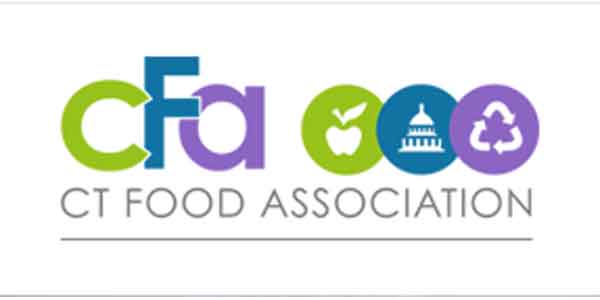The economy in Connecticut appears to be lagging behind the U.S. average, and a lack of fiscal discipline at the state and local levels continues to be an issue. According to the “2021 Report on Business Climate by State” produced by the Tax Foundation, Connecticut’s business climate is ranked 47th in the U.S. and has lagged in the bottom third for more than two decades.
The U.S. economy is projected to grow 4.1 percent in 2022, 3 percent in 2023, and then slow down to 2.5 percent in 2024. Comparatively, Connecticut’s economy is projected to grow 3.9 percent, 2.3 percent, and then 1.5 percent respectively, according to the report.
State workers currently make 40 percent more in wages and benefits relative to the private sector. High taxes, the high overall costs of living and demographic shifts are factors that will continue to create challenges for the state, according to Wayne Pesce, president of the Connecticut Food Association.
“On the bright side, Connecticut has a lot of money in the rainy day fund – over $3.1 billion. That’s enough money to fund the government for about 70 days,” he said. “And while that may not seem like a long time, Connecticut actually has one of the largest rainy day funds in the country.”
Also, the Connecticut economy continued its comeback in February from pandemic-induced job losses. Recent employment data from the state labor department shows that Connecticut has recovered more than 80.5 percent of the jobs lost since the COVID lockdowns in March and April 2020.
The pandemic disrupted the labor market throughout the entire food supply chain, which has had the biggest impact on food stores in the state over the last two years, Pesce said.
“I think the biggest challenge that food retailers face today is labor related,” he said. “A business’s ability to adequately staff its stores in order to operate effectively and meet the demands of customers has always been a bit of a juggling act. However, staffing of hourly workers has never been more challenging. This segment of the work population can determine the success or failure of almost any brick-and-mortar retailer.”
According to Pesce, the value that companies place in retaining good people is “evolving and accelerating.”
“I know of several independent retailers who have been quite creative in finding ways to retain this most valuable resource,” he said. “One grocer I know of acknowledges associates’ birthdays, graduations and other important life milestones on internal company communications and social media. Another independent food retailer created a company-sponsored fund for employee families in need of short-term medical or educational relief.”
CFA working for members
About three to four times per year, CFA will offer webinars to its members on a variety of industry-related topics. Last year, Pesce said it featured webinars on Connecticut’s new paid leave and marijuana laws, as well as energy efficiency strategies for grocers and cybersecurity.
Another way the CFA helps is by following the Connecticut General Assembly and any legislation that may impact the state’s food industry.
To Pesce, one of the most important bills the CFA has been working on during the 2022 General Assembly is Senate Bill 06: A Data Privacy Act.
“As technology seems to outpace the federal government’s ability to mitigate negative side effects, the question of how personal data is handled is an increasingly urgent one for citizens across America,” he said. “We support our General Assembly’s efforts to protect Connecticut consumers through a law that addresses how individual personal data is used, exploited or stolen.”
The technology that defines how consumers purchase goods and services and the laws that will regulate that technology are fragmented at best, according to Pesce. In today’s hyper-competitive retail landscape, traditional “brick-and-mortar” retailers must have a digital presence in order to compete.
“Consistent policy is critical for retail business entities to succeed, and we ask legislators to consider this while debating the issue,” Pesce said.
He noted that in the last month, Utah’s legislature passed a bill similar in style to the Virginia Consumer Data Protection Act that is expected to be signed into law. The Virginia and Utah laws do not include a private right of action, provisions on dark patterns, privacy impact assessments or a global opt-out requirement. The Utah bill also includes language that would protect food retailers’ ability to offer loyalty programs.
“Ultimately, these are both more business-friendly laws that we support but that still allow consumers the privacy they deserve,” Pesce said.
While the pandemic has posed massive challenges for the state’s food supply chain operations, balancing the safety of the workforce and serving millions of the state’s consumers weekly has never been more complicated, he said.
Senate Bill 314: An Act Concerning Protection of Warehouse Workers is an example of government over-regulation on the state level. At the same time, it underrates existing federal OSHA laws. Pesce said CFA opposes it, in part, because it would impose restrictions on the entire food supply chain based on a misunderstanding of the logistical necessity of current workplace metrics. It would create far more safety issues for employees than it seeks to correct.

